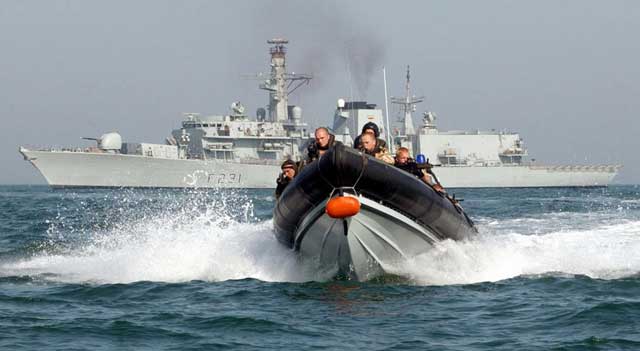West seizes £800m-worth of drugs from Iranian ports
Tehran strenuously denies involvement in narcotics smuggling, widely claimed to be a crucial source of income for the Taliban

Your support helps us to tell the story
From reproductive rights to climate change to Big Tech, The Independent is on the ground when the story is developing. Whether it's investigating the financials of Elon Musk's pro-Trump PAC or producing our latest documentary, 'The A Word', which shines a light on the American women fighting for reproductive rights, we know how important it is to parse out the facts from the messaging.
At such a critical moment in US history, we need reporters on the ground. Your donation allows us to keep sending journalists to speak to both sides of the story.
The Independent is trusted by Americans across the entire political spectrum. And unlike many other quality news outlets, we choose not to lock Americans out of our reporting and analysis with paywalls. We believe quality journalism should be available to everyone, paid for by those who can afford it.
Your support makes all the difference.Worsening tension between Iran and the West has been given a new twist by the revelation that the Royal Navy and allied forces have intercepted smuggled narcotics worth more than £800m coming out of Iranian ports. Much of the money, it is claimed, helps to fund the Taliban in Afghanistan.
Although raids on drugs-carrying dhows have been going on for several months near the sensitive Straits of Hormuz, at the mouth of the Gulf, they have only now been made public. According to military sources, the dhows carrying the narcotics are loaded in a number of small Iranian ports, but Tehran strenuously denies being involved in the illicit trade. It says any Western allegation of a link to trafficking is propaganda, partly aimed at justifying its large-scale naval presence in the area.
The accusations come amid growing fears of an attack on Iran by the US or Israel to halt Tehran's alleged attempts to develop nuclear weapons, and threats of retaliation by the Iranians. In the wake of an Israeli military exercise designed to show its ability to carry out a long-range strike on Iran, the Iranians responded with a series of missile test launches.
Yesterday Iranian government spokesmen kept up the threatening rhetoric, with a senior official, Mojtaba Zolnour, saying: "The US knows full well that with the smallest move against Iran, Israel and 32 US military bases in the region would not be out of the reach of our missiles, and would be destroyed." The cleric represents the supreme leader, Ayatollah Ali Khamenei, in Iran's Revolutionary Guard, which was responsible for the missile tests.
The Gulf, the highway for 40 per cent of the world's traded oil, has been specifically threatened, sending crude prices to record highs. Last week, a senior aide to Ayatollah Ali Khamenei declared that US and Israeli ships would be "burned" in the Gulf if any attack took place. But the sea route is also known for drug smuggling.
Although hashish forms most of the illicit trade in the Gulf, increasing quantities of heroin are also being intercepted, along with occasional seizures of cocaine and amphetamines. Afghanistan is responsible for 93 per cent of the world's supply of heroin, half of which is smuggled out through Iran.
British warships – the frigates HMS Chatham and HMS Montrose, the destroyer HMS Edinburgh and the Royal Fleet Auxiliary Argus – intercepted 23 tons of narcotics, out of a total of 70 tons recovered by US and other coalition forces. Officials said this represented a significant increase in smuggling through the Straits of Hormuz.
The commander of the Royal Navy in the Gulf, Commodore Keith Winstanley, said in Bahrain: "The scourge of illegal drugs is one of the gravest threats to the long-term security of Afghanistan, and a vital source of funding for the Taliban warlords who seek violence against Afghan, British and Nato forces.
"By seizing these drugs we have dealt a significant blow to the illegal trade. News of these successes has been kept quiet for operational reasons, but I am delighted that the tremendous efforts can now be realised."
Western powers have long claimed that the Straits of Hormuz are used by terrorist groups for running drugs. One of the first seizures took place five years ago when the destroyer USS Decatur captured a dhow carrying £5m-worth of hashish.
Iran has a growing drugs problem, and hundreds of Iranian border guards have been killed in shootouts with smugglers at the Afghan border.
But US and British officials say the Iranians have armed both Sunni and Shia insurgents in Iraq. Iran also has strong ties to its fellow Shias in Afghanistan, but has been accused nonetheless of supplying weapons to the Taliban, a charge it strongly denies.
Join our commenting forum
Join thought-provoking conversations, follow other Independent readers and see their replies
Comments